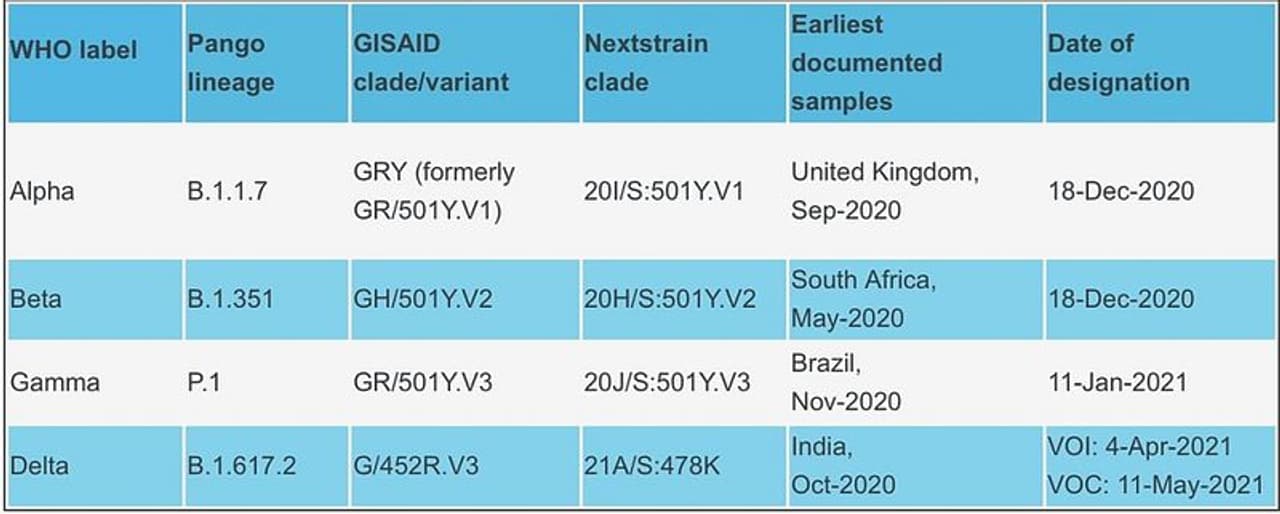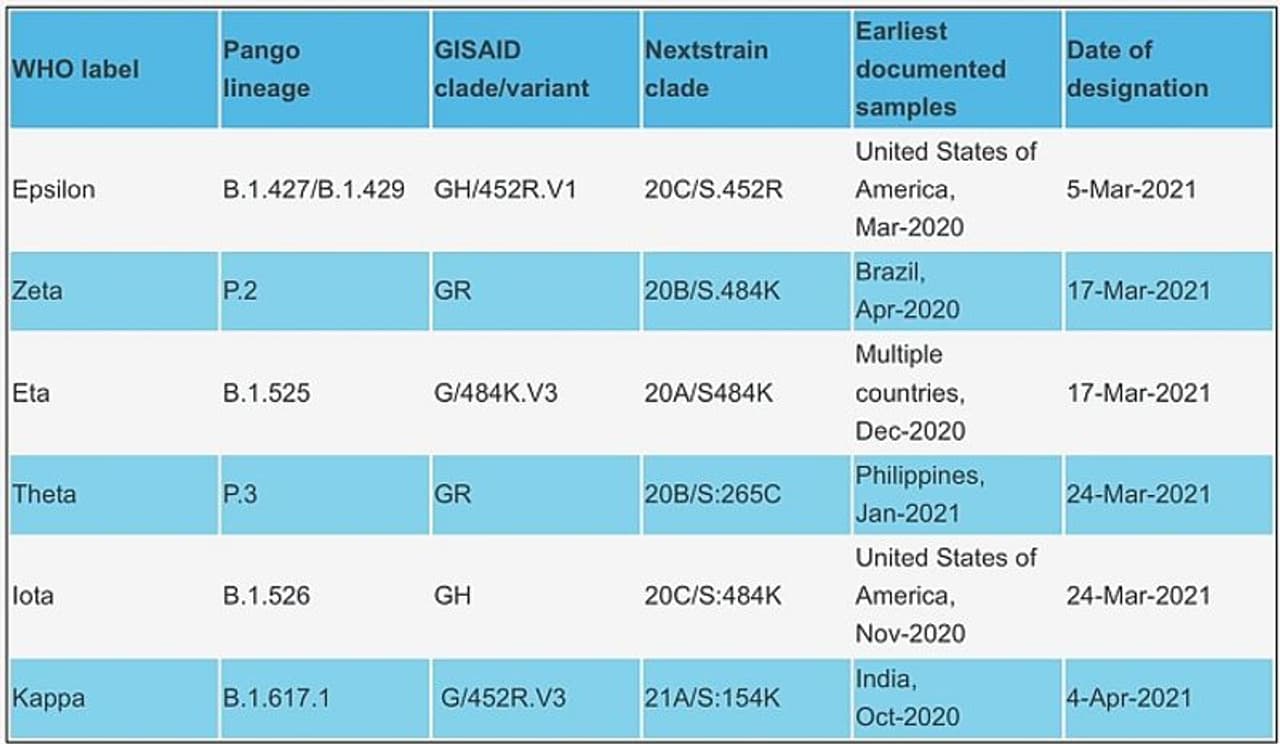According to the WHO, the new labels were chosen after wide consultation and a review of many potential naming systems.
The World Health Organisation has announced that it has assigned simple, easy to say and remember labels for key variants of SARS-CoV-2 -- the virus that causes COVID-19 -- using letters of the Greek alphabet.

Under the new process, B.1.1.7 (variant first identified in Britain) will be known as Alpha, B.1.351 (variant first spotted in South Africa) will be Beta, P.1 (variant first detected in Brazil) will be Gamma and the B.1.617.2 (variant first detected in India) will be labelled as Delta. The B 6.717.1 variant has been labelled as Kappa
According to the WHO, the new labels were chosen after wide consultation and a review of many potential naming systems.

The global health body convened an expert group of partners worldwide to do so, including experts who are part of existing naming systems, nomenclature and virus taxonomic experts, researchers and national authorities.
These labels do not replace existing scientific names, which convey important scientific information and will continue to be used in research.

The WHO said that the decision to introduce new labels to identify Variants of Interest or Variants of Concern was taken because even though scientific names for variants have their advantages, they can be difficult to say and recall and are prone to misreporting.
"As a result, people often resort to calling variants by the places where they are detected, which is stigmatizing and discriminatory. To avoid this and to simplify public communication, the WHO encourages national authorities, media outlets and others to adopt these new labels," the WHO said in a statement.
